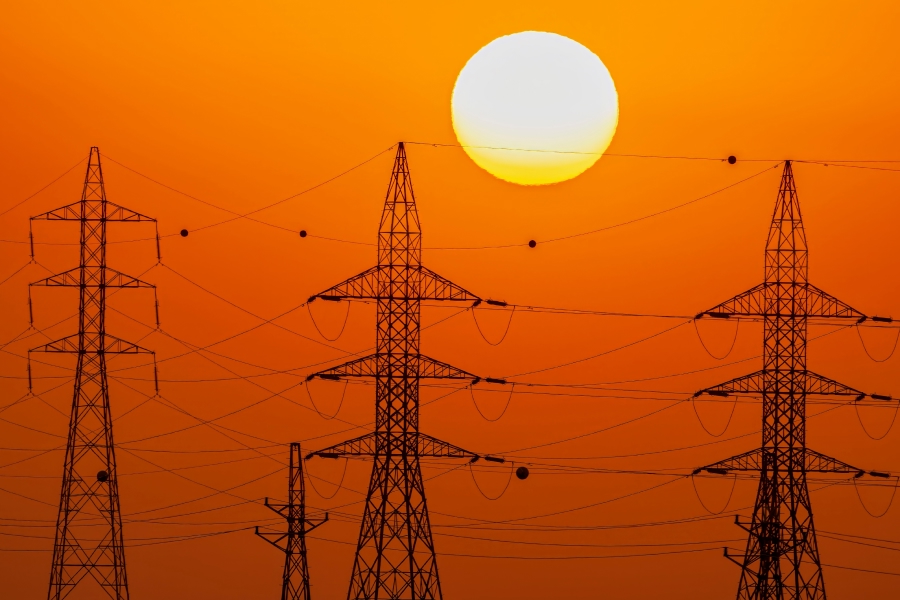Energy auditing has often been thought of as an expensive service that made the most sense for large companies with significant energy costs. Energy use had to be tested and monitored on-site by out-of-house professionals, followed by a report and then further consultations and audits to measure progress. As a result, most businesses just did their best to turn the lights off and set the air conditioner correctly, often overspending on energy by thousands of dollars per year.
Dave Krinkel, founder and president of ENERGYai, is familiar with the energy challenges businesses face, regardless of their size. Armed with degrees from UC Berkeley and MIT, he was the second employee at energy-monitoring software pioneer SRC Systems (previously Morgan Systems). Following a 30-year career tracking energy use for clients such as IBM, Safeway and the US Navy, Krinkel “wanted to try something that was targeted at small businesses, because everybody in (his) former space was chasing big companies, chains, big users.” Krinkel’s idea was prescient—he was well positioned to start a business that would benefit from two important shifts in the consumer energy market, starting a business that focuses on “energy auditing for the 99%.”
There’s a lot of dust in the air regarding the energy industry, but the first and most important drivers of utilities are policy and technology. ENERGYai’s business model is ahead of the intersection of these trends, and puts good policy and good technology in their corner.
First, in policy, utilities are sharing digital energy data with customers and making that feedback a priority, independently and collectively. Most notably, it was energy executives and professionals that spearheaded the Green Button Initiative, a federal program that began in 2012 where energy utilities voluntarily agreed to create a universal, standardized reporting system to share energy information with customers. More than 50 major utilities signed on, such as PG&E, Exelon, ConEd, and ENGIE. Green Button data isn’t available in every state or from every utility, but the Green Button Alliance of member utilities continues to grow.
Technology is also making ENERGYai’s business model possible, due to the growing ubiquity of digital “smart” electric meters. Smart meters allow utilities to easily collect, analyze and distribute user data, which can lead to savings for utilities and customers.
Of course, most small and medium businesses don’t have an experienced energy auditor on staff to interpret the data, and that’s where ENERGYai comes in. “ENERGYai brings the nuggets of that data at a very low price point, so even the smallest of businesses can take advantage of it regardless of what they spend on electricity,” Krinkel says.
With that goal in mind, ENERGYai offers a weekly report for subscribers. They can send automatic warnings if customers are going over their goals, or simply weekly updates on usage. One of the most popular report services, however, is not cost or kilowatts; it’s carbon. Carbon reporting is not required by any policy, but it is highly desired by the market, and ENERGYai is unique in their offering of carbon reporting for their customers.
Now, ENERGYai monitors energy use for clients with small and medium businesses in Northern California on a subscription basis of $5 per month per meter, with a $4 increase for extra meters after the first 10. Clients are in retail, hospitality, commercial businesses, academic and public institutions, as well as religious facilities. ENERGYai is based in Berkeley, California, and primarily serves clients within the PG&E network, but there are plans to expand their range because time, and technology, are on their side.
ENERGYai also works with other energy professionals and companies, bringing their services into partner’s offerings. Partners include HVACR contractors, facility management companies, and energy management services such as EnergyHippo and Sunistics. ENERGYai also partners with general contractors such as Mynt Systems, which develops turnkey solutions for maximizing energy efficiency in their designs and builds. Owners expect more information and performance feedback from contractors and services than they used to, and by working with ENERGYai, partners have a reliable and regular source of energy data analysis to share with their customers.
Technology is fundamentally changing energy markets in ways that can reduce costs and waste for all consumers. Thanks to new technology and responsive policies, services such as energy auditing are increasingly available to every business. Many economists say big data is now the big market, but it’s companies like ENERGYai that know how to extract the value of the data for customers that are poised for success.











